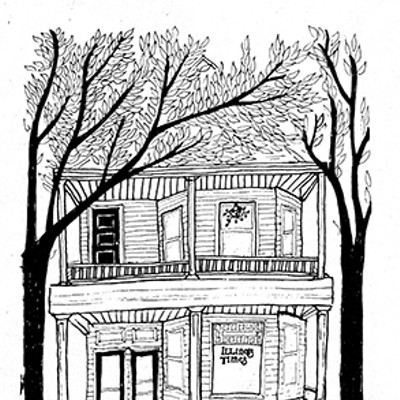The United States should accept 100,000 refugees from the ghastly violence in Syria, said U.S. Sen. Dick Durbin recently. More than half of that nation’s people have been driven from their homes and to date at least 250,000 have been killed – the equivalent of nearly three and a half million Americans. When Durbin called the resulting flow of refugees “the most significant humanitarian challenge of our time,” that was not a liberal talking but a man who knows his arithmetic.
Senator Durbin often disappoints his more ill-tempered constituents by being humane and sensible but on this matter he is in the right. Durbin recalled, as few Americans seem to, that the United States took in at least 750,000 refugees from Vietnam and more than 500,000 from Cuba, but that so far the U.S. has taken in only 2,000 from Syria, of which fewer than 100 have been resettled in Illinois. Germany, whose population of 83 million is a quarter that of the U.S., expects to host up to a million asylum-seekers this year – 14 times more than this country.
This passage in Holst’s piece caught my eye: “Americans were particularly sympathetic to the Protestant exiles, whom they likened to their own Pilgrim forefathers.” America was populated by refugees like the Pilgrims of the Plymouth Colony, who were targets of the Church of England, from whose doctrine they dissented. Maryland began as a haven for English Catholics fleeing the fires and ropes of Protestant monarchs. Illinois was particularly enriched by the arrival of liberal Germans escaping retribution for the failed revolutions of 1848; later we welcomed the Jews to the old West Side who’d fled the pogroms, the Vietnamese who created Chicago’s Little Saigon – the list is a long one.
Just about a century after central Illinois’ embrace of the Portuguese, William Stratton – the future two-term Illinois governor who had just been elected congressman-at-large from Illinois – made a speech he called, “Delayed Pilgrim’s Progress.” In it he pled for support for a bill he introduced in 1947 that would authorize admission to the U.S. each year for four years of as many as 100,000 persons displaced by World War II.
As we learn from David Kenney’s 1990 biography of Stratton, A Political Passage, Stratton was no Durbin. His early views on foreign affairs were off-the-shelf Republican conservative – inward-looking, even xenophobic. (He had won his seat by Red-baiting incumbent Emily Taft Douglas.) His bill left many supporters in Illinois aghast, the more so since their Bill Stratton had proposed it. Some foresaw competition with veterans for scarce housing, some feared the arrival of “too many Jews.” Several of Stratton’s old political pals accused him of trading the support of god-fearing Americans for the support of Internationalists and of “the Jewish element.” Enough Illinois Republicans turned on Stratton because of the bill (so some of his backers surmised) that he lost his race for secretary of state in 1948.
There are always reasons. Durbin’s suggestion was damned because it meant risking the entry of Muslim terrorists; in the late 1940s Stratton’s critics pointed to “un-American ideas” spread by godless Communist subversives, who were then the nation’s bogeyman under the bed. Good people should face that fear today as they did then. A displaced persons bill based on Stratton’s was passed by Congress on June 25, 1948, having been backed by the national bodies of the American Legion, the American Federation of Labor, the Farm Bureau, Catholics, Protestants and Jews, the League of Women Voters, the American Civil Liberties Union and the Chamber of Commerce. The bill also enjoyed the support of Republicans such as Senator Robert A. Taft, who stated, “We have not forgotten that America is still regarded as a haven for the oppressed.”
It was a different Republican Party then, if not quite a different America. Inviting strangers of different faiths and expectations to make decent lives here presupposes that they can. Any large-scale program – and Durbin’s is not – will cause problems that will have to be solved with sustained, informed and compassionate intelligence of a kind that seems to be beyond us these days. More on those, perhaps, in a later column.
Contact James Krohe Jr. at [email protected].























